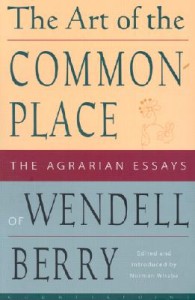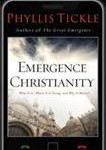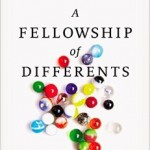 I re-encountered these passages from Wendell Berry’s book THE ART OF THE COMMONPLACE this weekend.
I re-encountered these passages from Wendell Berry’s book THE ART OF THE COMMONPLACE this weekend.
(Caveat: Berry uses the terms “redskin” and the n-word, in ways that explore the demeaning tone that these words carried — and still carry. Berry’s economic point is clear, but I am conflicted about his use of these loaded terms)
Read from “But we know…” on page 36 to “the industrial systems of Europe” page 37:
Start after the asterisks on page 42 through the end of the chapter:
Berry’s point is clear — and one that John and I make in the SLOW CHURCH book — modern Western culture is marked by its persistent avoidance of pain and work. The labor is passed off to other people, or as Berry observes, to the creation at large: (see the top of p. 44).
I was struck by the painful and ugly truth of the theology of Berry’s point here, that it is us, as churches, that are called to bear the labor and the suffering of our places — not in some individualistic/heroic act of martyrdom, but as a vocation that we discern and enter into together. I have no delusions that we as white Westerners will be able to give up our privilege, but we must move in this direction as “deny ourselves” and follow Christ. We cannot and should not be afraid of good hard work, of the risks we take upon our bodies and our souls, even upon our aspirations to success. We must not be afraid to take on the work that no one else wants to do.
Ultimately, shalom is found in everyone doing in their fair share of work, and indeed as Christ’s followers we will find God’s grace and peace in sabbath cycles of work and rest, but the Western economy is broken and great energy and sacrifice will be needed as we demonstrate a different way.
Berry’s observation that “The members of any established people or group or community sooner or later become ‘redskins’ – that is, they become the designated victims of an utterly ruthless, officially sanctioned and subsidized exploitation” (36), seems to ring true for churches, which is why churches generally move with the mobility of their members to seemingly “greener pastures” or bear the victimization of their places for a time and then give up and die off.
The way forward — as Slow churches — is to:
1) stay put in our places, bearing the pain as the surrounding neighborhood changes
2) To begin slowly to take on the work that no one else wants to do (whether that’s caring for those that mainstream culture ignores or rejects, growing food, managing waste, washing dishes instead of using paperware, etc).
3) And remembering all the while that our primary calling in Christ, is not our own comfort or success or the achievement of any standard of living…












